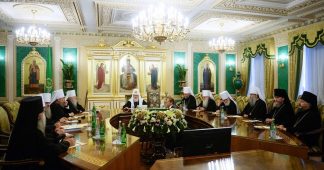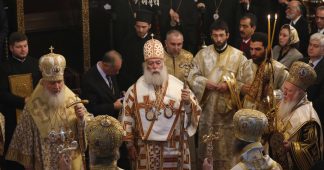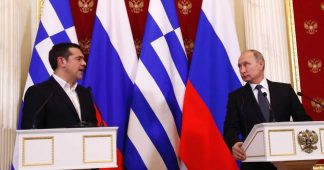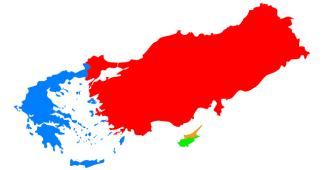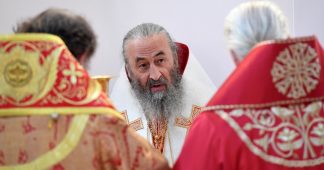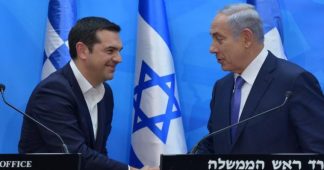by William Mallinson
Dimitris Konstantakopoulos’ punchy piece of 11 December about the split between Moscow and Constantinople triggered in my mind some other related factors which can be considered. They are: political interference in religion; concomitant US plans to isolate Moscow as much as possible; Washington’s plans to turn Greece against Moscow; and Moscow’s claim to be first among equals in the family of Christian Orthodox Churches.
First, the US-friendly Ecumenical Patriarchate has broken a centuries-old agreement with Moscow, whereby it has arbitrarily annulled its transferring of its jurisdiction over the Kievan Metropolis to Moscow; and then recognised two previously unrecognised Churches, which would mean an autocephalous Ukrainian Orthodox Church under Constantinople. This amounts to blatant political interference of the highest order, and is likely to further bedevil the disorder in the Ukraine. It detracts from spirituality.
Second, and connected to the above, are the US’s efforts to do anything it can to both irritate and isolate Russia, even to the irresponsible point of turning the Cold War into a hot one. By pandering to the US, the Ecumenical Patriarchate has not only shown its weakness, but its underhand political involvement. Already terribly weakened by the Turkish government’s closing of the Chalki Seminary in 1971, the Patriarch has shot itself in the foot.
Washington’s plans to upset Athens-Moscow relations continue apace. On 19 December, Ms. Amy Carlton, head of the US Embassy’s political section in Athens, informed a meeting at the US- and -Israel friendly Institute of International Relations of Panteion University that a few days previously, an important US-Greek ‘strategic dialogue’ had taken place in Washington, with even Pompeo attending. She also referred to the ‘increasing importance’ of the Eastern Mediterranean (was it not already important enough?!), to NATO, to the ‘important geopolitical dynamic’ around Greece, and to Greece as an energy hub. This sort of public relations nonsense is of course not new, but needs to be periodically done, whenever the US is worried about Greece being nice to Moscow. Many Greeks tend to swallow the nonsense, lock, stock and barrel, blissfully unaware of the fact that the US will inevitably turn a blind eye to Turkish aggression against Greece, as they did in 1974 and over the Imia crisis. How many Greeks are aware that the US does not recognise Greece’s right to territorial airspace beyond its territorial sea, and that the US recognises only a six-mile sea limit? As for the Church of Greece, which is autocephalous, nothing would please Washington more than exacerbating the Church of Greece’s relations with the Moscow Patriarchate.
This connects to the US’s pet project to nurture and promote defence co-operation between Greece, Cyprus and Israel, fully supported and even praised by Greece’s supine Tsipras. How many Greeks know that the Israeli ambassador to Greece refused to answer this author’s question as to whether Israel recognised Greece’s twelve-mile nautical limit and ten-mile airspace limit? And, despite Erdogan’s pro-Palestinian rhetoric, the US-promoted Turkish-Israeli military co-operation agreement still exists. Turkish diplomacy is well known for having its cake and eating it. Whatever the public relations, the US needs Turkey more than it needs Greece. From Washington’s viewpoint, a Turkish-Israeli-Greek-Cypriot alliance would be nirvana. It’s all about Russia!
As for Moscow’s putative rôle as the first among equals – meaning that it would become the second Rome – the question arises as to whether this could happen. In 1510, the monk Philotheus of Pskov wrote: ‘I wish to add a few words on the present Orthodox Empire of our ruler: he is on earth the sole Emperor of the Christians, the leader of the Apostolic Church which stands no longer in Rome or in Constantinople, but in the blessed city of Moscow. She alone shines in the world brighter than the sun […] all Christian Empires are fallen and in their stead stands alone the Empire of our ruler in accordance with the Prophetical books. Two Romes have fallen, but the third stands, and a fourth there will not be.’
A new battle for the Balkans has begun……for hearts and minds.
(*) Professor of Political Ideas and Institutions, Universitá Guglielmo Marconi
